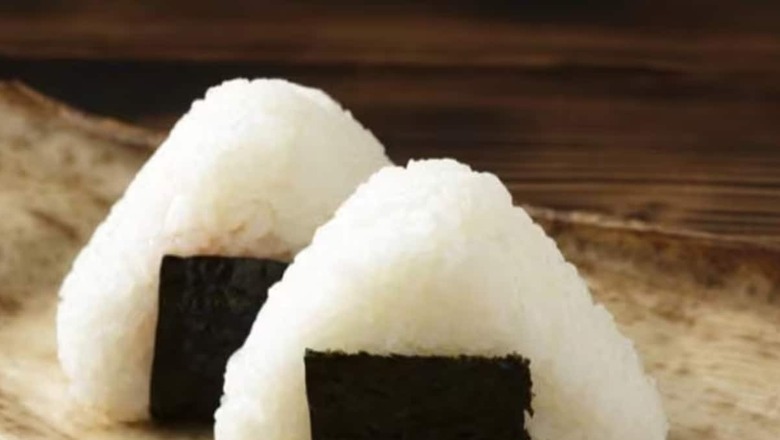
views
In Japan, a recent food trend involving Onigiri, or rice balls, has gained attention for its unconventional approach. Instead of the traditional hand-shaping method, some young chefs are using their armpits to knead and mould these iconic snacks. This unique method, which has become popular on social media, has brought a new twist to Japanese food culture. South China Morning Post (SCMP) reports that before beginning the process, all ingredients and body parts that come into contact with the food undergo thorough disinfection. The chefs then engage in physical activity to induce sweating, using their armpits in place of their hands to shape the rice balls.
Surprisingly, these armpit-crafted delicacies are reportedly selling at prices as high as ten times that of regular Onigiri in select restaurants.
Foodies’ reactions to these armpit-molded and sweat-infused rice balls have been mixed. Some customers report no major difference in taste, while others find the concept very intriguing yet unsettling. To address these mixed reactions, certain eateries have reportedly chosen to show the rice ball preparation process to curious patrons.
Scholars have also offered insights into the cultural and physiological implications of this phenomenon. Research from 2013 explores the unique significance of armpits, suggesting that sweat from this area contains pheromones that can affect human emotions when sensed or tasted, reports SCMP.
Despite its popularity, not everyone is on board with this unconventional method. The trend has sparked debates on social media platforms, with proponents arguing that as long as hygiene standards are maintained, there is no harm in exploring new culinary techniques. However, sceptics express concerns over potential health risks associated with this unorthodox preparation method.
“These rice balls can satisfy the taboo desires of a few people, as long as they are hygienic, there is no harm,” one person said on a Japanese social media site. Another one called it “unacceptable,” and mentioned that “what if the chef has a hidden illness? I’d rather eat regular rice balls,” reports SCMP.
As discussions continue online, Japan’s food culture continues to offer a variety of surprising and unconventional dishes. From the Basashi known for raw horse meat – to Funazushi, a dish that includes storing the fish in a salt barrel for 2 years, Japan never fails to surprise us!



















Comments
0 comment